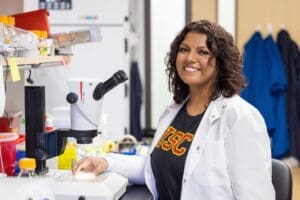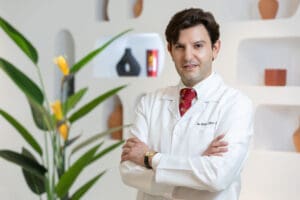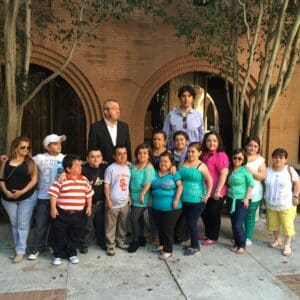Scientists are uncovering evidence that short periods of fasting, if properly controlled, could achieve a number of health benefits, as well as potentially helping the overweight, as Michael Mosley discovered.
On Saturday, August 4, 2012 , Valter Longo, PhD joined Morgan Freeman to celebrate science and the Emmy-nominated series “Through the Wormhole with Morgan Freeman.” Longo appeared on the series in 2011 to discuss his research on prolonging longevity, including his findings that extended the life span of yeast by 10 times and the life span of mice by two.
On July 31, The Milken Institute, a nonprofit, nonpartisan think tank based out of Santa Monica, California, released Best Cities for Successful Aging, described as a “first-of-its kind, data-driven index, which measures and ranks the performance of 359 U.S. metropolitan areas in promoting and enabling successful aging” according to a press release on the organization’s website.
“This report represents a critical component of the policy and advocacy strategy that needs to be undertaken to ensure that seniors nationwide have access to all of the fundamental services that they require,” said Pinchas Cohen, MD, dean of the USC Leonard Davis School. “It also sets the stage for future efforts to allow personalization of senior services according to individual needs. The Milken Institute should be commended for its commitment to the concept of successful aging.”
Unlike other lists that generally rely on household surveys to rank “best cities to retire,” Best Cities for Successful Aging is an index based on public data and utilizes 78 indicators that determine the overall quality of life for seniors to determine which cities are meeting the needs of older adult populations.
Although warm, sunny weather has long been synonymous with older adult communities, the index shows that health care, employment, living arrangements and financial factors are even more important when creating communities that enable successful aging.
“Seniors want to remain active and engaged and healthy and connected to their communities. Many want to continue to work throughout life,” said Paul Irving, Milken Institute’s senior managing director and chief operating officer, in an article from CNN.com. “They want and deserve great health systems. They want to have a voice.”
Additionally the study separates out two sub-populations, the 65-79 age group and the 80+ age group, noting that the needs of older Americans are not uniform and what may be important to a person 80+ years of age may not be important to a 70-year-old and vice versa. Thus, cities in the index receive three scores: an overall score and then separate scores for the 65-79 and 80+ age categories.
Los Angeles, California, which included nearby Long Beach and Santa Ana communities as part of the overall metro area, ranked 30th overall among the 100 large metro areas. It came in 27th for the 65-79 age group and 15th for the 80+ age group. Readers can visit the ranking calculator to see where their metro is falling short and how improvements in the indicators can improve a metro’s ranking. Currently, LA’s three lowest indicators are transportation at 69.12, health care at 62, and living arrangements at 51.31 points. If LA were able to raise each of these scores to 75 points respectively, its overall ranking would jump from 30th to 6th overall among large metro areas.
“We hope the findings spark national discussion,” said Irving, “and, at the local level, generate virtuous competition among cities to galvanize improvement in the social structures that serve seniors.”
The Milken Institute plans to update the index every two years. Where will your community rank?
–
Individuals can learn more about the Best Cities for Successful Aging and visit the “Ranking Calculator” at succesfulaging.milkeninstitute.org
The effects of neighborhood environment and social relationships on health and longevity fascinate Jennifer Ailshire, PhD As a sociologist and social demographer at the USC Leonard Davis School of Gerontology/Ethel Percy Andrus Gerontology Center, she is involved in several major studies analyzing these effects on human wellbeing across the lifespan.
Appearing in Journal of Health and Social Behavior, Ailshire’s most recent publication, co-authored with Sarah A. Burgard, PhDof the University of Michigan, studies the under examined links between sleep, one of the most essential life functions, and interactions with family, our most important social relationships.
In “Family Relationships and Troubled Sleep among U.S. Adults: Examining the Influences of Contact Frequency and Relationship Quality,” Ailshire and Burgard found that demanding family relationships can negatively influence your sleep, which may have serious consequences for your health and wellbeing.
“We found that individuals with strained and demanding family relationships, especially those who had regular contact with family members, reported more frequent trouble sleeping,” Ailshire said. “This study is important because it suggests that families—whether or not they live with you—matter for sleep and that even though sleep is a very individualistic activity, it is embedded in a larger social context.”
The duo’s findings have far-ranging repercussions for clinicians and health-care providers, whom they hope will use this data to help patients with trouble sleeping look at their issues holistically in terms of the stress brought on by their social and family relationships.
Ailshire’s focus on how complex psychosocial webs, layered relationships and physical environments influence health led her to successfully apply for the prestigious National Institute on Aging (NIA) K99/R00 grant. While the majority of these awards go to biomedical researchers, Ailshire became only the second awardee ever in NIA’s Division of Behavioral and Social Science Research.
“The K99/R00 is an extremely competitive grant that identifies exceptionally promising post-doctoral fellows and supports them during their transition to independence,” said Pinchas Cohen, MD, dean of the USC Leonard Davis School of Gerontology. “I am delighted that Jennifer has been selected to receive one and we are all proud to have her do her work in the USC Leonard Davis School.”
Under the terms of this award, Ailshire’s proposed research will study how neighborhood environments influence health and functioning among its residents, with a special focus on older residents. To aid her research, Ailshire will complete additional training in the workings of the cardiovascular, respiratory, metabolic, neuroendrocrine and immune systems. In light of all of her success, Ailshire credits USC for serving as an excellent, supportive environment for a young researcher.
“In addition to being evaluated based on the proposed science and my strengths as a research scientist, my proposal was also evaluated based on the institutional environment and my mentors, including Eileen Crimmins, Caleb Finch and Margy Gatz,” Ailshire said. “I believe that being at the USC Leonard Davis School and the Andrus Center was a major contributing factor in getting this award.”
By Jonathan Riggs
A sobering new study by researchers from the USC Leonard Davis School of Gerontology finds that elder abuse in low-income Latino communities goes largely unreported.
More than 40 percent of Latino elders told Spanish-speaking interviewers that they had been abused or neglected in the last year — yet only 1.5 percent of victims said they had ever reported the abuse to authorities.
 Pinchas Cohen, a prominent researcher and leader in the field of gerontology, begins his tenure as dean of the USC Leonard Davis School of Gerontology, effective July 16. He will also become the holder of the William and Sylvia Kugel Dean’s Chair in Gerontology as well as executive director of the Ethel Percy Andrus Gerontology Center.
Pinchas Cohen, a prominent researcher and leader in the field of gerontology, begins his tenure as dean of the USC Leonard Davis School of Gerontology, effective July 16. He will also become the holder of the William and Sylvia Kugel Dean’s Chair in Gerontology as well as executive director of the Ethel Percy Andrus Gerontology Center.
Formerly vice chair for research at the UCLA School of Medicine, Cohen has overseen numerous teaching, training and research activities at UCLA and has been involved in programs related to diseases of aging, including cancer, Alzheimer’s disease and metabolic disorders.
Previously, he served as chief and professor of endocrinology at Mattel Children’s Hospital and associate director of the UCSD-UCLA Diabetes and Endocrinology Research Center.
Focusing his research on the emerging field of mitochondrial biology, Cohen and his team have worked to demonstrate the importance of mitochondrial peptides in aging and longevity. He is co-founder of CohBar, a biotechnology company developing mitochondrial peptides for the treatment of diabetes.
Cohen has received several awards for his work in the field of aging, including a National Institute of Aging EUREKA Award, the National Institutes of Health Director’s Transformative Research Award and the Glenn Award for Research in Biological Mechanisms of Aging.
He serves on the boards of several professional journals and societies, including the American Federation for Aging Research and the Growth Hormone Research Society.
A prolific author, Cohen has published more than 250 papers in top scientific journals and his work has been cited in the Los Angeles Times and the New York Times.
Cohen earned his MD degree with top honors from the Technion School of Medicine in Israel, and was a resident and fellow at Stanford University, after which he spent seven years at the University of Pennsylvania.
“I’m honored to be given this once-in-a-lifetime opportunity to lead the world’s oldest and largest school of gerontology,” Cohen said. “I look forward to joining forces with our amazing faculty, staff and students to continue and expand the USC Leonard Davis School’s mission: to improve the quality of life for older adults through research, service and education.”
 A researcher whose work and influence can be felt on a global scale, the USC Leonard Davis School of Gerontology’s Eileen Crimmins, PhD, was named the winner of the 2012 Robert W. Kleemeier Award, one of the most prestigious given by The Gerontological Society of America (GSA).
A researcher whose work and influence can be felt on a global scale, the USC Leonard Davis School of Gerontology’s Eileen Crimmins, PhD, was named the winner of the 2012 Robert W. Kleemeier Award, one of the most prestigious given by The Gerontological Society of America (GSA).
Named for an influential former president of GSA, the Kleemeier Award is given in recognition of outstanding research in the field of gerontology. Crimmins, who holds the AARP Chair of Gerontology at the USC Leonard Davis School, is also the director of the USC/UCLA Center on Biodemography and Population Health as well as the Multidisciplinary Training in Gerontology Program and the Network on Biological Risk, sponsored by the National Institute on Aging. Her research explores the connections between socioeconomic factors, life expectancy and other health outcomes.
“Eileen Crimmins is truly one of the all-time greats. The importance of her work to gerontology—as well to science in general—cannot be overstated,” said Pinchas Cohen, MD, dean of the USC Leonard Davis School. “We are enormously proud to see her recognized with this wonderful award.”
Crimmins will receive an inscribed crystal award during a special presentation at the President’s Opening Session in November for this year’s GSA, to be held in San Diego, CA. She will present the Kleemeier Lecture at GSA’s 2013 Annual Scientific Meeting, to be held in New Orleans, LA.
“I will receive this award not only because of my own research but because I am a member of the faculty at the USC Leonard Davis School of Gerontology: the best institution for gerontological research in the world,” Crimmins said. “I am honored to join my fellow faculty members Vern Bengtson and Caleb Finch in the list of Kleemeier awardees.”
Nowhere on earth will the impact of the aging revolution be as drastic as in China—by 2050, there will be more than 400 million Chinese citizens over the age of 60.

With an enormous population, a low mortality rate and its infamous “one child” policy, China is now in the unique position of having too few younger people to support its older citizens, who face a dangerously stressed national infrastructure. As the world watches to see how the nation meets these unprecedented challenges, high-ranking officials invited the USC Leonard Davis School of Gerontology’s Assistant Dean, Maria Henke, M.A., to explore the possibility of international collaborations.
Drawing on the USC Leonard Davis School’s international reputation among Asian countries and its success with a pilot gerontology-training program in Tokyo, Henke toured many of the country’s facilities and universities. Accompanied by USC Leonard Davis/Keck School professor Edward L. Schneider, MD, and the USC Leonard Davis School’s Director of International Student Initiatives, May Ng, Henke also embarked on a series of meetings to lay the groundwork for future partnerships.
“The link between the USC Leonard Davis School and Asia has always been strong, and we are thrilled about the opportunities our aging expertise could create in China,” said Henke. “We have the potential to help enact very real changes that will benefit literally millions of older adults in China and beyond.”
“Maria was besieged the phone calls from Chinese universities interested in working with the USC Leonard Davis School,” Schneider said. “They recognized that USC was the leading university in the field of gerontology and were eager to discuss collaborations.”
After attending the first China International Senior Services Expo in Shanghai, Henke and Schneider also met with Du Yubo, the Vice Minister of Education, as well as representatives of City University of Hong Kong, the Alliance of International Education, the University of Peking, Renmin University, the Chinese Academy of Social Sciences and the Beijing Institute of Technology.
“We were honored to meet so many Chinese and international experts in the field,” Henke said. “The universal desire to improve the quality of life for the older adults of today as well as of tomorrow was inspiring in any language.”
Besides the discussions of academic and professional gerontological programs, the pair met with representatives from planned senior housing communities such as Display Infinity Limited and Belmont Villages.

 Every year, safe, affordable housing options for older adults become more crucial. In recognition of his esteemed career serving the housing needs of the world’s aging population, the USC Leonard Davis School of Gerontology’s Jon Pynoos, PhD, was honored with the Janet L. Witkin Humanitarian Award from Affordable Living for the Aging (ALA).
Every year, safe, affordable housing options for older adults become more crucial. In recognition of his esteemed career serving the housing needs of the world’s aging population, the USC Leonard Davis School of Gerontology’s Jon Pynoos, PhD, was honored with the Janet L. Witkin Humanitarian Award from Affordable Living for the Aging (ALA).
“I am very honored to receive ALA’s award named for Janet Witkin, whom I first met in 1980 when I was just starting out at USC,” Pynoos said. “Despite the challenges of developing housing for low-income seniors, Janet pioneered the concepts of shared housing and house-matching. She was innovative, tenacious and big-hearted.”“Dr. Pynoos is a powerful advocate for helping others understand that how we design housing—with considerations for the built environment and services—can enhance the vitality of individuals at any age,” said Rachel Caraviello, ALA’s VP of Programs and Services and a USC Leonard Davis alumna. “He has spent his career advising leaders like Janet and educating decision makers, nationally, about the need for more accessible, affordable housing so our communities are prepared to support an aging population.”
Janet L. Witkin founded ALA in 1978 after seeing the limited housing options available to her ailing grandfather. Over the course of her career, she created the first cooperative living house for seniors in L.A., a roommate-matching program and five cooperative residences for low-income seniors. Although she died in 2009, her work lives on in the mission of ALA, who have helped more than 30,000 seniors in their search for safe, stable housing.
“I am inspired by those who are following in Janet’s footsteps to create innovative programs and housing opportunities, to impact the lives of L.A.’s seniors and to prove that if there is a will, there is a way,” Pynoos said. “Shared and supportive housing is life-enriching at a time when older people’s incomes, social networks and supports are often shrinking. Today, such housing options are particularly important.”
In his speech, Pynoos discussed his urban planning, fall prevention and aging research, describing how older adults benefit from the increased companionship, engagement and support found in shared living arrangements like the ones ALA builds—and how absolutely necessary it is to take a fresh look at housing needs through an aging lens.
“Winston Churchill once said, ‘We shape our houses and later they shape us,’” Pynoos said. “ALA has proved Churchill wrong. Keep up the good work.”
Ending the year on a bittersweet note, the USC Leonard Davis School graduated its largest class thus far while bidding longtime dean Gerald C. Davison goodbye.
“After a wonderful five and a half years, this will be my final commencement as your dean. On July 1, I will return to teaching and research in the department of psychology,” Davison said in his address. “I can’t think of a better or more meaningful way to cap off my tenure as dean than to celebrate the achievements of our graduates.”
He introduced incoming dean, Pinchas “Hassy” Cohen, MD, who drew a connection between himself and the recent grads.
“We are both entering a new phase in our lives. Me as the leader of this unique, world-leading School that is constantly breaking new ground, and you, as recent graduates, embarking on new careers where you will make a difference in the lives of aging adults worldwide,” Cohen said. “Becoming part of the Trojan family is an important and exciting new aspect of my life, and I know everyone in this room takes this honor as seriously as I do.”
The ceremony featured faculty, staff and students uniting, with Tara Gruenewald, PhD and Aaron Hagedorn, PhD serving as faculty marshals while Lu Zhang and Elaine Martini served as student flag and banner bearers.
For their PhDs in Gerontology, Kathleen Wilber, PhD, hooded Zachary Gassoumis, Merril Silverstein, PhD, hooded Jessica Penn Lendon and Mara Mather, PhD, hooded Nichole Lighthall and Kaoru Nashiro. Kelvin J.A. Davies, PhD, D.Sc., presented a recognition of the affiliated doctorate to Andrew Michael Pickering.
Caleb Finch, PhD presented Lighthall and Nashiro with the prestigious Heinz Osterburg Prize, while Dean Davison presented Sean Curran, PhD, with the Dean’s Outstanding Faculty Award for his banner year mentoring students.
“As his students and colleagues will attest, Dr. Curran is a world-class researcher, professor and mentor,” Dean Davison said. “We are immensely proud of him.”
Davison went on to recognize many of the faculty’s recent awards, including Finch winning USC’s Presidential Medallion; Davies winning the Sigma Phi Omega Award as well as being knighted by the country of France; Valter Longo, PhD, winning the Vincent Cristofalo “Rising Star” Award in Aging Research from the American Federation for Aging Research; and Susan Enguídanos winning a USC Mellon Mentoring Award, the Betty and James E. Birren Emerging Leadership Award from the California Council on Gerontology & Geriatrics as well as Faculty Member of the Year from the Student Gerontology Association.
Inspiring both tears and jubilation, the ceremony capped off a long journey for many of the students and inspired all present.
“Your degree from USC is something you have earned by dint of your intelligence, industriousness and commitment,” Davison said. “It is yours forever and it will only grow in value as the key to your future. On behalf of the faculty and staff of the USC Leonard Davis School of Gerontology, I congratulate each and every one of you, and wish you all the best.”
Congratulations to all our graduates and award winners! Fight On, Gero!

engAGING Awards: Tameka Brown, Susan Hurt, Alice Kim, Emily Loynachan, Elaine Martini, Anna Nguyen, Tammy Nguyen, Laura Corrales-Diaz Pomatto, Lu Zhang
Heinz Osterburg Prize: Nichole Lighthall, PhD and Kaoru Nashiro, PhD
Order of Troy: Alyssa Bobman, Michelle Huynh, Gina Jaqua, Lu Zhang
Order of Arete: Matthew Bressette, Sonia Nguyen, Karen Marcy Pham, Stephanie Polson
Order of Laurel and Palm: Alice Kim, Emily Loynachan
Renaissance Scholar: Michelle Huynh, Alice Kim, Emily Loynachan, Lu Zhang
Discovery Scholar: Laura Corrales-Diaz Pomatto (Prize Finalist), Alice Kim (Prize Finalist)
Gerontology Minors: Christopher Frace, Gina Jaqua
Bachelor of Science in Human Development and Aging: Alyssa Bobman, Laura Corrales-Diaz Pomatto, Valerie Cromwell, Nathan Cutietta, Michelle Huynh, Alice Kim, Jonathan Li, Emily Loynachan, Caite O’Brien, Shannon Sullivan, Kim Vu, Lu Zhang
Graduate Certificate in Gerontology: Athan Bezaitis, Peter Lancellotti, Marcie Terasawa-Lew
Master of Long Term Care Administration: Christopher Jackson
Master of Arts in Gerontology: Valerie Applewhite, Tameka Brown, Christine Cavanaugh, Susan Cherco, Wan Ping Chin, Ashley Chun, Shawna Conlan, Kevin Crowell, Alexis Denton, Hema Doshi, Jennifer Fry, Yadira Garcia, Molly Gleason-Kodama, Carrie Greer, Susan Hurt, Kathleen Taylor
Master of Aging Services Management: Cynthia Bradshaw, Renee Cunningham, Liang Dong, Alicia Figueroa-Tiler, Jacqueline Gemelos, Madeline Heller, Teresa Hill, Karen Marcy Pham
Master of Science in Gerontology: Amy Bassoff, Sara Bonnell, Matthew Bressette, Lisa Brinkmann, Megan Calhoun, Poyin Chen, Jung Hoon Choi, Jenny Chou, Nora Dabuni, Raquel Delorio, Ayesha Dixon, Kyla Forbes, Maddison Gan, Janice Gastelum, Heather Harada, Elaine Martini, Lauren McNamara, Anna Nguyen, Sonia Nguyen, Tammy-Tam Nguyen, Yusuke Ninomiya, David Orenstein, Stephanie Polson, Maria Siciliano, Natalie Warrick
Doctor of Philosophy in Gerontology: Zachary Gassoumis, Jessica Penn Lendon, Nichole Lighthall, Kaoru Nashiro
Recognition of Affiliated Doctorate: Andrew Michael Pickering









